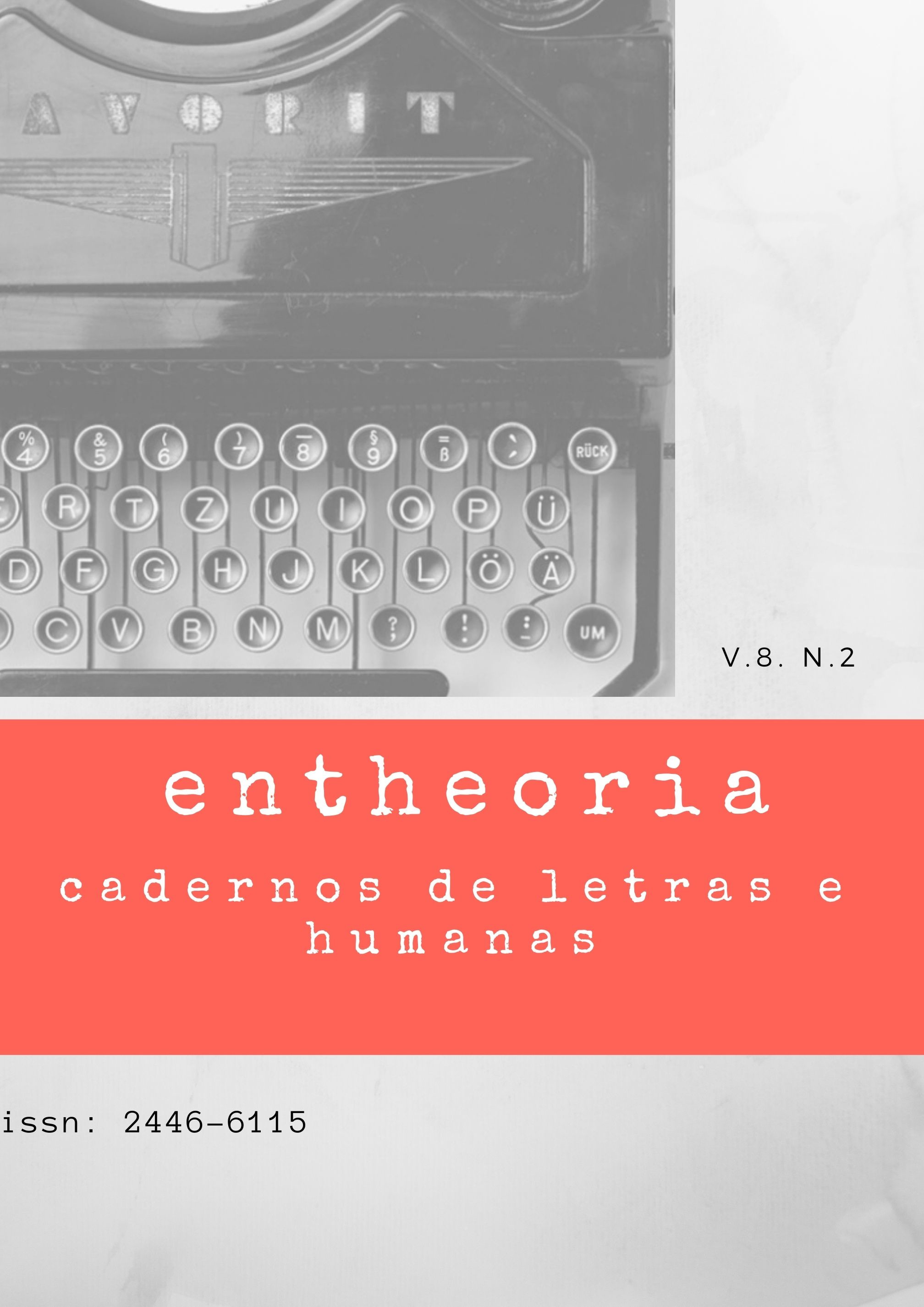TOTALITARIANISM, DYSTOPIA AND POWER IN 1984 BY GEORGE ORWELL
Keywords:
1984; Dystopia; Totalitarian; Power; Speech.Abstract
This paper aims to discuss the established power relation in the novel 1984 (1949) by George Orwell. These power relations are not only established in opposition, domination, slavery and subjection, but also emerge and can mobilize forces to oppose each other, through resistance and subversion. For this purpose, we investigate the genre Dystopia as a critic to the functioning of totalitarian societies distinguishing the established power relations. In theory, the analysis is based on Arendt (1948), to understand the totalitarian regime, besides the genre Dystopia and its functioning based on Pavloski (2005) and Fromm (2010), in Foucault (1979) the concept of power and subjection is observed. In the end of this research, based on the analysis and theoretical discussions, we give evidence that the established power relations are presented from the speech that will be molding into the totalitarian societies. The advertising and the speech are the mechanism that will make the people turn into subjects with less expression capability, concluding that the language keeps being the major instrument and tool of power.Downloads
References
ARENDT, Hannah. As origens do totalitarismo. Anti-semitismo, imperialismo, totalitarismo. Cia das Letras, São Paulo, 2012.
CASSINO, João F. Modulação deleuziana, modulação algorítmica e manipulação midiática. In A sociedade de controle: manipulação e modulação nas redes digitais. São Paulo: hedra, 2018.
CHICO SCIENCE & NAÇÃO ZUMBI. Da lama ao caos.. Rio de Janeiro: Sony Music; Chaos, 1994.
FONSECA, Ricardo Marcelo. Modernidade e contrato de trabalho: do sujeito de direito à sujeição jurídica. São Paulo: LTr, 2002.
FOUCAULT, Michel. Microfísica do poder. Organização e tradução de Roberto Machado. Rio de Janeiro: Edições Graal, 1979.
FOUCAULT, Michel. Vigiar e Punir: nascimento da prisão. 27°. ed. Rio de Janeiro: Vozes, 1999.
FROMM, Erich. «Posfácios – Erich Fromm (1961)», in ORWELL, George. 1984. Trad. Alexandre Hubner; Heloisa Jahn, São Paulo: Companhia das Letras, 2010, pp. 365-37.
HILÁRIO, L. C. Teoria Crítica e Literatura: a distopia como ferramenta de análise radical da modernidade. Anuário de Literatura, [S. l.], v. 18, n. 2, p. 201-215, 2013. DOI: 10.5007/2175-7917.2013v18n2p201. Disponível em: https://periodicos.ufsc.br/index.php/literatura/article/view/2175-7917.2013v18n2p201. Acesso em: 29 nov. 2021.
JACOBY, Russell. O fim da utopia. Rio de Janeiro: Record, 2001;
MATOS, A. S. de M. C. Utopias, distopias e o jogo da criação de mundos. Revista da Universidade Federal de Minas Gerais, Belo Horizonte, v. 24, n. 1 e 2, p. 40–59, 2018. DOI: 10.35699/2316-770X.2017.12600.
Disponível em: https://periodicos.ufmg.br/index.php/revistadaufmg/article/view/12600. Acesso em: 7 nov. 2021.
ORWELL, George. 1984. Trad. Antônio Xerxenesky, Rio de Janeiro: Antofágica, 2020.
PAVLOSKI, Evanir. 1984: A distopia do indivíduo sob controle. Ponta Grossa: Editora UEPG, 2014 [e-book].
PARRA F. Alpha 60: A Ditadura da Lógica. Revista Diálogos Interdisciplinares, v. 3, p. 151-161, 2013.
VAN DIJK, Teun A. Discurso e poder. São Paulo: Contexto, 2008, p. 113-123.
Downloads
Published
How to Cite
Issue
Section
License
Copyright (c) 2022 Entheoria: Cadernos de Letras e Humanas ISSN 2446-6115

This work is licensed under a Creative Commons Attribution 4.0 International License.
O(s) Autor (es), na qualidade de titular (es) do direito de autor do ensaio ou artigo submetido à publicação, de acordo com a Lei nº. 9610/98, concorda (m) em ceder os direitos de publicação à Revista Entheoria e autoriza(m) que seja divulgado gratuitamente, sem ressarcimento dos direitos autorais, por meio do Portal de Revistas Eletrônicas da UFRPE e sites associados, para fins de leitura, impressão e/ou download pela Internet, a partir da data da aceitação do artigo pelo Conselho Editorial da Revista. É vedada a submissão integral ou parcial do manuscrito a qualquer outro periódico.


























